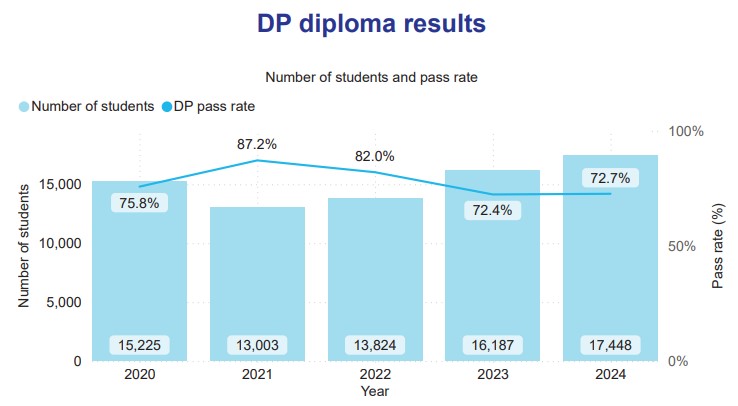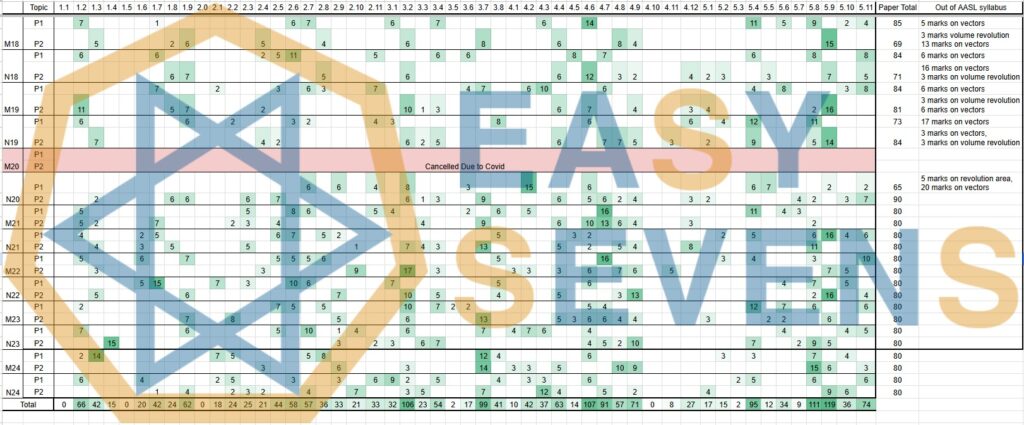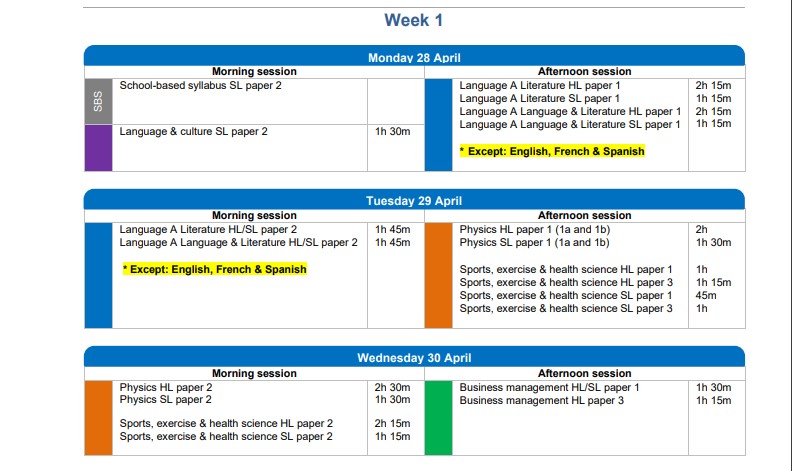The importance of selecting the appropriate subjects for the International Baccalaureate (IB) Diploma Programme cannot be overstated. This grueling and challenging academic regimen requires students to explore diverse disciplines and study a vast range of subjects. The IB Diploma subject selection can have a momentous impact on students’ academic and professional trajectories, encompassing university admissions and career opportunities.
In this blog post, we will endeavor to provide valuable tips and suggestions for aspirants of the IB Diploma Programme on cracking the code on subject selection. We will delve into the details of the IB Diploma subject requirements and the timing of subject selection, coupled with the predicaments confronted by students in choosing the right subjects for the programme. Furthermore, we will offer practical insights to empower students to make astute subject selections and deftly navigate the grueling and demanding IB Diploma Programme.
I. Timing of IB Diploma Subject Selection
The intricacies of timing subject selection for the International Baccalaureate (IB) Diploma Programme can be daunting, requiring students to take a proactive and informed approach. Schools may have specific timelines for subject selection, and students need to be aware of these deadlines to avoid last-minute panic. However, this is not always straightforward. Schools are sometimes constrained by scheduling difficulties or limited course or teacher availability. Consequently, students must exhibit flexibility and have backup options in place.
To help students navigate the process, schools may employ a range of strategies, from one-on-one counseling to group meetings or online resources. It is essential for students to take an active role in this process and seek out additional information when required. By understanding the timing challenges and strategies used by schools to help with subject selection, students can avoid pitfalls and be equipped to make informed decisions that will put them on the path to success in the IB Diploma Programme.
II. Challenges in IB Diploma Subject Selection
In selecting subjects for the IB Diploma, students may face a myriad of challenges, some of which can be quite daunting. These challenges can range from identifying personal strengths and interests to balancing academic and extracurricular demands. Let’s delve deeper into some of the most significant challenges students may face.
A. Identifying personal strengths and interests
The first challenge is identifying personal strengths and interests. With a wide range of subjects on offer, students need to take a careful and well-thought-out approach in selecting subjects that align with their academic and career goals. This requires a thorough evaluation of academic strengths and interests to ensure the best possible subject choices.
B. Narrowing down the number of subjects
Another challenge is narrowing down the number of subjects to be studied. Choosing six subjects can be a daunting task for students, but it is essential to select a well-balanced combination of subjects that complement each other and provide a well-rounded education.
C. Choosing between unfamiliar subjects
Students may also face challenges when choosing between unfamiliar subjects. The IB Diploma offers a broad range of subjects that students may not have studied before, which can make it difficult to assess the expectations and workload associated with each subject. Thus, thorough research is necessary to make informed subject selections.
D. Subject selection on university applications
The impact of subject selection on university applications is another significant challenge that students may face. Universities may have specific subject requirements for admission, so it is essential to select subjects that align with future academic goals and increase chances of admission to the desired university.
E. Balancing academic and extracurricular demands
Finally, students need to balance academic and extracurricular demands when selecting their IB Diploma subjects. The program is rigorous and demands a substantial amount of time and effort to complete successfully. Therefore, students need to choose a combination of subjects that challenge them academically while allowing time for extracurricular activities and personal interests.
III. Unraveling the Complexities of IB Diploma Subject Selection
Choosing the optimal combination of IB Diploma subjects is no easy feat. However, a plethora of tips from successful IB graduates can assist in making the most advantageous selections.
Tip 1: Mind the University Entrance Requirements
Primarily, aspiring IB Diploma graduates are keen on obtaining admission to their preferred universities. Consequently, when selecting subjects, they must weigh their desired institutions’ entrance requirements carefully. These requirements may vary among universities, including specific subject prerequisites and minimum grades. Thus, to avoid errors, candidates are advised to visit the universities’ websites and scrutinize the detailed information.
Tip 2: Strike a Balance with Rigorous, Yet Manageable Subject Combinations
As a second step, it is advisable to choose subjects that capture their interest and passion but are still challenging enough to demonstrate academic potential. To attain a well-rounded education, it is recommended that candidates select three Higher Level (HL) and three Standard Level (SL) subjects. However, it is critical to select subjects that students can manage, given their extracurricular activities and other commitments.
Tip 3: Unravel the Complexities of Unfamiliar Subjects and Their Expectations
The IB Diploma programme offers many subjects that students may have never studied before. It is paramount to research these unfamiliar subjects thoroughly to make informed decisions. This entails understanding the subject content, assessment format, and expectations. Furthermore, students should consider seeking counsel from subject teachers, counselors, and previous IB graduates.
Tip 4: Delve Deep Into the Assessment Criteria
Each subject in the IB Diploma programme is assessed differently. Students must comprehend the assessment methodology and criteria to prepare effectively and efficiently for their exams. Thus, they should take the time to familiarize themselves with the assessment requirements for each subject they choose.
Tip 5: Grasp the Distinction Between HL and SL
HL and SL subjects vary in terms of the depth and breadth of study. HL subjects demand more rigor and are more time-consuming than their SL counterparts, requiring students to study more content. Thus, students must carefully consider the requirements and expectations of HL subjects before making their selection.
Tip 6: Seek Guidance from Subject Experts and Previous Graduates
IB Diploma programme coordinators, subject teachers, and counselors have vast experience in assisting students in choosing the optimal subjects. Students should not hesitate to seek their guidance and advice. Additionally, seeking insights from previous IB graduates can provide valuable insights into experiences, challenges, and recommendations.
Tip 7: Keep an Open Mind and Be Willing to Adapt
Lastly, it is crucial to maintain an open mind when choosing IB Diploma subjects. Although students need to have a plan, they must also be flexible and willing to adapt to changing circumstances and priorities. Hence, they should make informed decisions along the way to achieve the optimal outcome.
IB Diploma Subject Selection
In conclusion, the process of subject selection for the IB Diploma Programme can be overwhelming and stressful, but by following these tips from successful graduates, students can make informed decisions that set them up for success in their academic and personal lives. Choosing the right combination of subjects requires thoughtful consideration of personal strengths and interests, balancing academic demands with extracurricular commitments, and taking into account university entrance requirements. Seeking advice from teachers, counselors, and previous IB graduates can be invaluable in the decision-making process.
By researching unfamiliar subjects, understanding their expectations, and familiarizing oneself with the differences between HL and SL, students can make well-informed decisions. Additionally, keeping an open mind and being willing to adapt as needed can help students stay motivated and engaged throughout their IB journey. Overall, careful subject selection is a critical component of the IB Diploma Programme, and the benefits of making informed decisions can have a significant impact on a student’s future academic and personal success. By following these tips and strategies, students can set themselves up for success and make the most of their IB experience.




